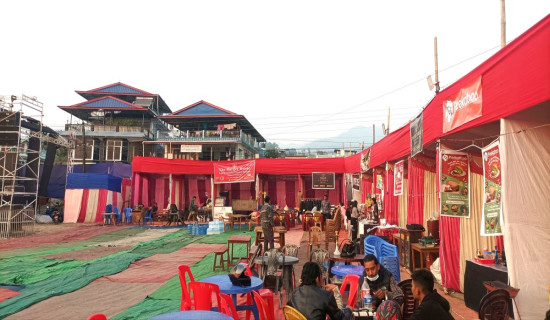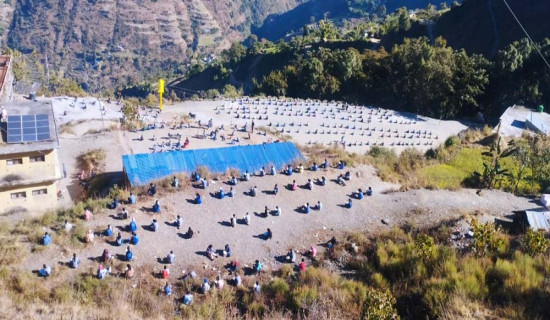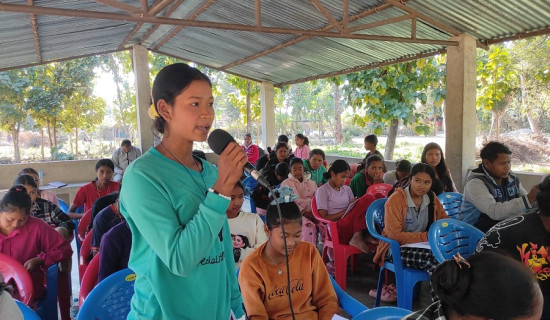- Wednesday, 25 December 2024
Free Sickle Cell Medicine
Sickle cell anaemia is a significant public health issue, particularly in Banke, Bardiya, and other western districts of Nepal. The genetic blood disorder predominantly affects marginalised communities, including Tharu. The disorder has been overlooked by the public health strategies, despite its negative consequences. This has led to preventable suffering and economic burdens for affected families. The other day, Minister for Health and Population, Pradip Paudel, made a commitment to ensuring free medicine and quality treatment for sickle cell anaemia patients. This is a promising step forward that will support the affected families.
Specialised wards are being established in several hospitals to address the issue of accessibility, while international collaboration has expedited the supply of essential medications. However, translating these measures into effective and sustainable outcomes requires addressing systemic challenges within the nation’s healthcare system. The World Health Organisation (WHO) has recognised sickle cell disease as a public health priority in regions with high prevalence. WHO’s guidelines stress the need for early diagnosis, comprehensive treatment, and integration of care into national health systems. While Nepal’s efforts align with these recommendations to some extent, there remain significant gaps that need urgent attention.
The affordability of health care facilities for sickle cell anaemia is a critical issue. In order to manage the financial burden of the disease, inclusion in a health insurance scheme is important. The costs of blood transfusions, regular medications, and pain management should be covered by the insurance scheme. Policies must be updated to ensure that essential services and medications are comprehensively covered under the national health insurance programme. Awareness and education also need to be emphasised to combat the impact of sickle cell anaemia.
While Minister Paudel has emphasised raising awareness, concrete plans for community-based education campaigns and genetic counselling are also equally important. Awareness empowers families to make informed decisions and reduce stigma. Strengthening primary healthcare with training in diagnosis, pain management, and nutritional counselling is vital for effective sickle cell care in Nepal. WHO advocates for preventive measures and educational initiatives to reduce disease prevalence and improve outcomes for existing patients. These measures are particularly vital in rural and underserved areas, where healthcare infrastructure is often limited. The sustainability of current initiatives is also equally important.
Healthcare facilities in Nepal often face human resource shortages and delays in the release of allocated funds. These issues must be addressed to ensure the long-term success of sickle cell anaemia programmes. Strengthening the healthcare workforce and streamlining financial processes are important initiatives to be taken by the concerned authorities. The government must also prioritise self-reliance on the production of essential medicines. The international collaborations have provided short-term relief; investing in local pharmaceutical production and robust supply chains can mitigate dependency and ensure consistent access to life-saving treatments.
Along with providing free treatment, the government must plan for the comprehensive reforms. These include integrating sickle cell anaemia care into a broader healthcare framework, improving awareness and preventive efforts, and addressing systemic inefficiencies. The government’s approach to combating the disease will reflect its commitment to equitable healthcare.










-original-thumb.jpg)






